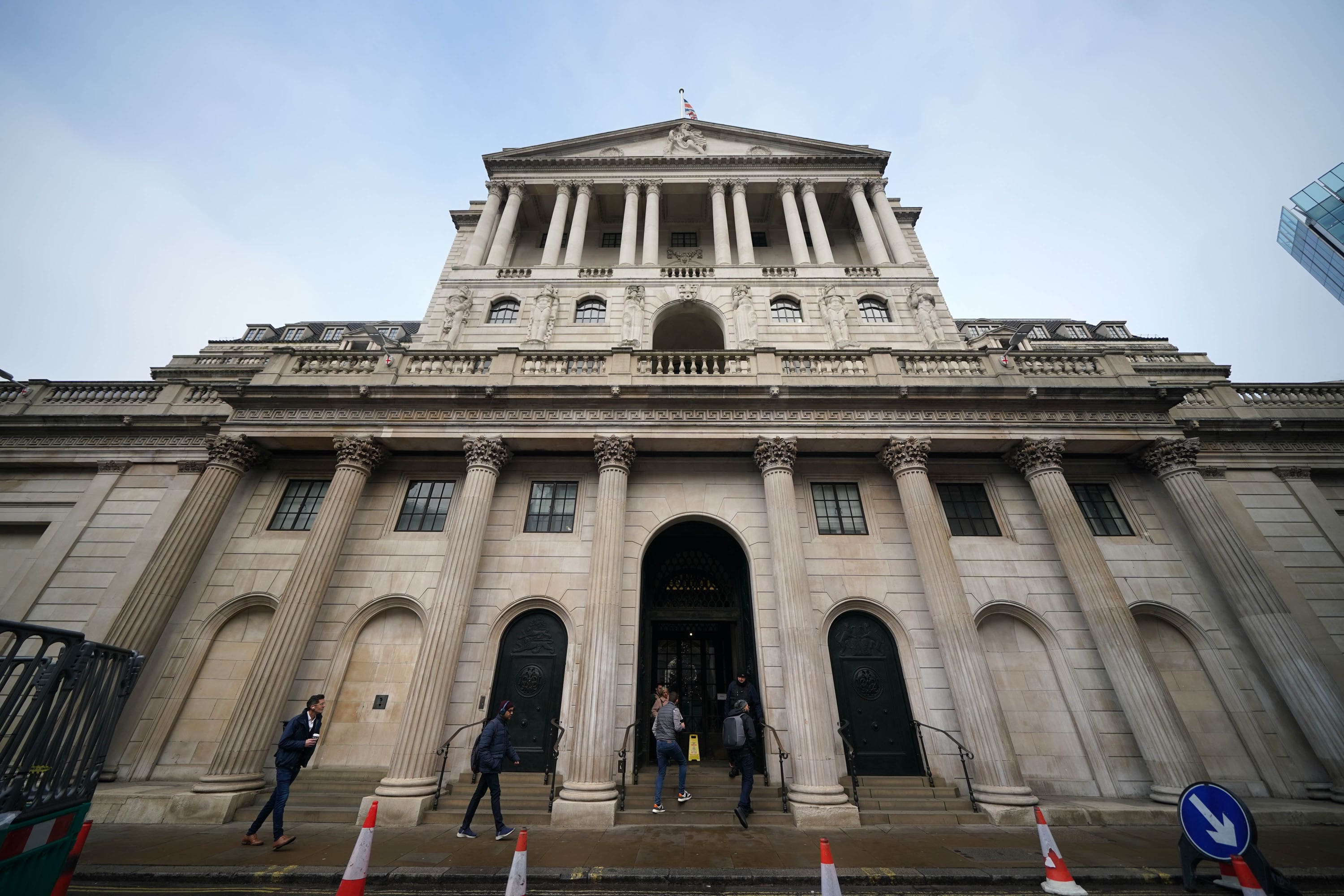Inflation expected to rise for first time this year in blow for Bank of England
City analysts think that figures released by the Office for National Statistics (ONS) on Wednesday will show that inflation has risen to 2.3 per cent
Inflation in the UK is expected to rise for the first time this year in new data that could put the brakes on any further reductions to interest rates by Bank of England policymakers next month.
City analysts think that figures released by the Office for National Statistics (ONS) on Wednesday will show that inflation has risen to 2.3 per cent.
Inflation has been at 2 per cent since May and gave the Bank’s monetary policy committee the confidence to cut the base rate to 5 per cent, a quarter point drop, at the start of August, after a year of high rates to curb inflation.
But it has since signalled a cautious tone on further cuts, and many economists believe rates will be kept unchanged when the committee next meets in September.
Dan Hanson, chief UK economist at Bloomberg Economics, said: “The resurgence in headline inflation in the second half of the year will create a challenging backdrop for the BOE.
“While the rise can be easily explained by base effects associated with energy prices, the optics of easing policy when inflation is on the rise aren’t favorable.”

Catherine Mann, a rate setter at the Bank of England and an external member of the Bank’s monetary policy committee, has said the UK should not be “seduced” into thinking inflation will stay low over the coming year.
Ms Mann, said she is concerned that inflation could rise again soon, despite the main measure falling to the Bank’s 2 per cent target earlier this year.
Speaking to the Financial Times, Ms Mann pointed to survey evidence that suggests companies expect to increase wages and prices. She said that indicates that she and other rate setters are “looking at a problem for next year.”
Ms Mann, a former OECD chief economist, was one of four policymakers who voted to leave rates unchanged at the last meeting, at 5.25 per cent, a 16-year high.
“Inflation has come down but... we shouldn’t be seduced by headline inflation because of the role of energy and external aspects working through,” she said.
She was referring to a recent fall in energy prices, which some economists think has hidden persistent upward inflationary pressures elsewhere in the economy.
One of those pressures is wages. Some on the MPC still think strong wage growth will take longer to ease, meaning services price inflation will also stay high.
She said that in the latest round of annual pay deals, “some people at the bottom got quite a bit of an increase, rightfully so, but the ones above them didn’t. Which means next year they will”.
She added: “There is an upwards ratchet to both the wage setting process and the price process and . . . it may well be structural, having been created during this period of very high inflation over the last couple of years.”
“That ratchet up will take a long time to erode away.”
She said it could take “multiple years” for wages to reach workers’ expectations, adding: “There are a lot of vacancies, there’s a lot of desire to employ people and there don’t seem to be workers out there.”
Ms Mann was speaking ahead of several economic announcements in mid-August, including an update on jobs and wages, and on the headline rate of inflation.
She also suggested that recent volatility in global stock markets has the potential to add upward pressure to inflation, and that the Bank could be tempted to keep rates higher for longer as a result.
Elizabeth Martins, UK economist at HSBC, said: “We see no urgent case for a follow up rate cut, but the BOE is clearly looking at this data and if it shows they’re right to be chilled about services inflation pressures then it will open up that question. The message from the BOE was ‘we’re not rushing into the next one.’”
Subscribe to Independent Premium to bookmark this article
Want to bookmark your favourite articles and stories to read or reference later? Start your Independent Premium subscription today.


Join our commenting forum
Join thought-provoking conversations, follow other Independent readers and see their replies
Comments